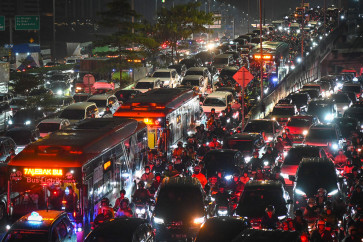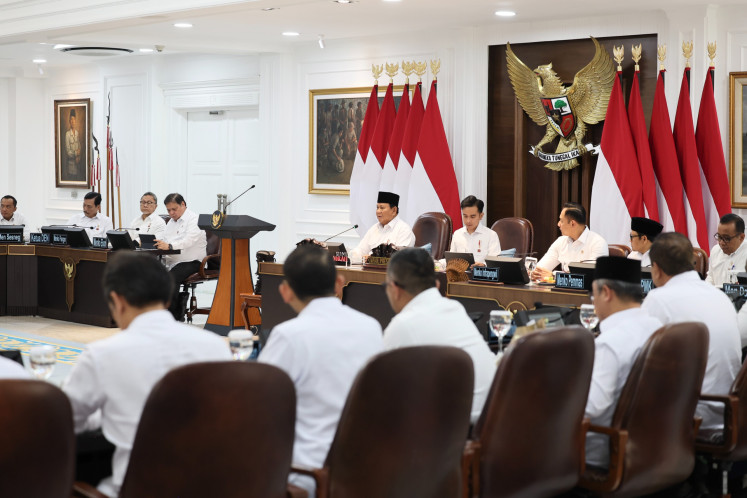Popular Reads
Top Results
Can't find what you're looking for?
View all search resultsPopular Reads
Top Results
Can't find what you're looking for?
View all search resultsHigh costs leave Solo’s new railbus system idle
The Batara Kresna Railbus commuter train serving Sukoharjo-Surakarta (Solo)-Yogyakarta has been idle for the last five months due to high operational costs and poor ticket sales
Change text size
Gift Premium Articles
to Anyone
T
he Batara Kresna Railbus commuter train serving Sukoharjo-Surakarta (Solo)-Yogyakarta has been idle for the last five months due to high operational costs and poor ticket sales.
Launched in July 2011 and starting regular operations in August 2012 with great fanfare, the system closed in November.
During its brief tenure, the railbus experienced continued financial losses, as passenger figures were only 10 percent of original estimates. Ticket sales could not cover operational costs, which were up to Rp 3.5 million (US$359) per route per day.
“A subsidy is needed if we want to reopen the railbus, because raising the ticket price will make the service even less attractive,” state-owned railway company PT KAI director Ignasius Jonan said.
A one-way ticket costs Rp 10,000 on the Surakarta-Sukoharjo route, Rp 20,000 on the Surakarta-Yogyakarta route and Rp 30,000 on the Yogyakarta–Sukoharjo route.
Ignasius said that one-way tickets on all the routes would have to be priced at Rp 50,000 and the system would have to operate at 100 percent capacity for it to turn a profit.
However, there is little chance that increased ticket prices can make up for the gap, as the railbus is already considered expensive compared to other forms of transportation, such as the Prambanan Express commuter train running between Surakarta and Yogyakarta, for example, which sells tickets for around Rp 10,000 each.
The higher cost of railbus tickets was justified by amenities such as air-conditioning and increased convenience, as the railbus passed through downtown Solo and the commuter train did not.
Surakarta Mayor FX Hadi Rudyatmo said that the administration’s request for a subsidy for the railbus was rejected by the Surakarta City Council, whose members said that the municipality should not pick up the slack, given that the railbus served destinations outside Solo.
“We will continue trying to get the subsidy,” Hadi said, identifying the Transportation Ministry as a potential benefactor for the system.
The railbus, which is 40 meters long and has a passenger capacity of 156, was originally intended to fill in the gaps in commuter train service.
The railbus stopped operation in October 2012, after a critical air compressor on one of the railbuses was damaged after it was hit by a falling tree along the Surakarta-Sukoharjo route.
The railbus carriage was sent by officials to the state-owned train producer PT INKA in Madiun, East Java, for repairs, which were completed by November.
While the Rp 16.8 billion system was intended to resume operations in January, operations have remained suspended for cost reasons.
“I tried the railbus once” Nita Setyowati, 27, a regular commuter between Yogyakarta and Surakarta, said.










